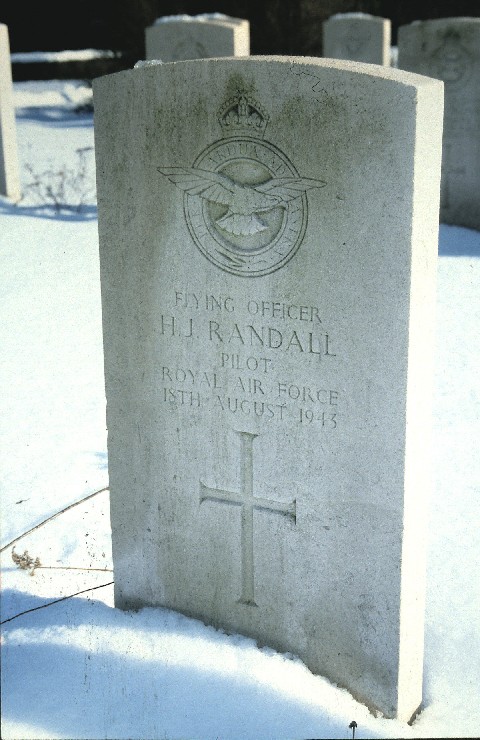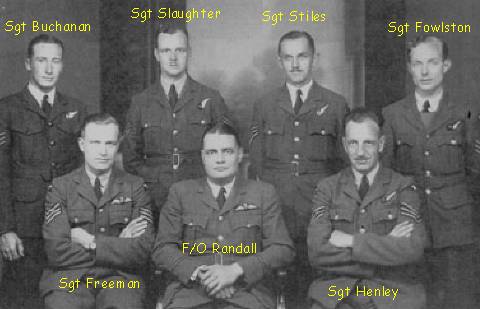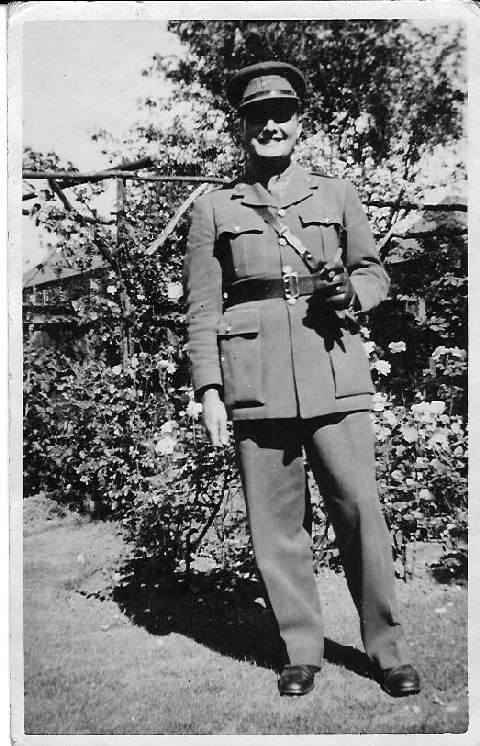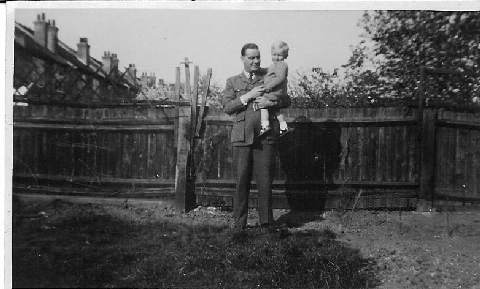Personnel Index - Detail



Harry Randall in the unifrom of the Grenadier Guards. He was based at Caterham in Surrey

Harry Randall left the Guards and retrained as a pilot. He is shown in this photograph, at home, holding his son Tony.
17/18 August, 1943; PEENEMUNDE:
This was a 'special' raid in which Bomber Command was tasked to attempt a night time precision raid on the German research establishment at Peenemunde, on the Baltic coast. It was here that the V-2 rockets were built and tested.
It was essential that a decisive blow be struck against this target, and crews were made well aware at briefing that they would have to return the following evening if sufficient damage was not incurred. Such was the importance of this raid, that most of the squadrons operating, were led by their Wing Commanders. A force of 596 bombers started leaving their home airfields on a pleasantly warm summer’s evening. Twelve Lancasters had been detailed from the squadron and at 21.35 the first aircraft and crew speed down Fiskerton's runway. Five miles beyond the runway’s end lay the city of Lincoln with its majestic Cathedral silhouetted against the setting sun. Most of 49 Squadron's aircraft bombed from about 7,000ft. By this time, the German controllers had realised the real target and had re-directed the night fighters. In conjunction with strong flak defences, the fighters took a heavy toll of bombers, especially the 3rd and final wave. For the first time the German fighters were using a new weapon, codenamed 'Schrage-Music'. It consisted of two 30mm cannon mounted to point upwards from the fuselage. So equipped the pilot slipped underneath an unsuspecting bomber and aimed shells up into the wing fuel tanks. Once perfected, an experienced crew could bring a bomber down using very few rounds. Forty aircraft fell, with 5 Group losing 17 - Fiskerton had 4 Lancasters shot down, one-third of those dispatched by 49 Squadron.
Lt Meissner picked up F/O Harry Randall's aircraft and in seconds shot them down... this aircraft crashed in Denmark with no survivors; they too are buried at Aabenraa. The crew’s flight engineer was Sgt Les Henley. Formerly in the Army, he had joined the RAF in 1940 and managed to get on ops at the age of 43, which was well above the average.
Lancaster JA691 (EA-L)
F/O H.J. Randall Pilot (Killed)
Sgt L.J. Henley F/E (Killed)
Sgt L.F. Freeman Nav (Killed)
Sgt R. Fowlston W/AG (Killed)
Sgt N.W. Buchanan RAAF A/G (Killed)
Sgt W.J. Stiles B/A (Killed)
Sgt R.W. Slaughter A/G (Killed)
Crew on their 8th operation
For more details of the loss see this website dedicate to the loss of JA691.
